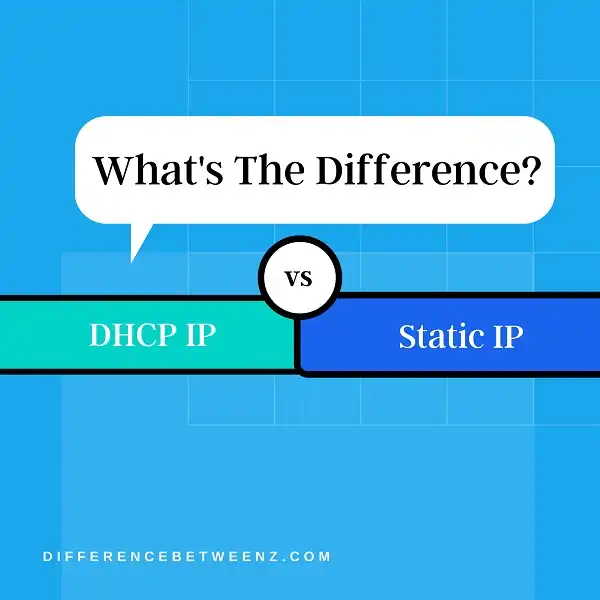There are two main ways to assign an IP address to a device on a network: DHCP and static. Both have their pros and cons, but which one is right for your network? Here’s a breakdown of the difference between DHCP and static IPs.
What is DHCP IP?
DHCP, or Dynamic Host Configuration Protocol, is a networking protocol used to dynamically assign IP addresses to devices on a network. By automatically assigning IP addresses rather than manually configuring each device individually, DHCP makes it easier for network administrators to manage large networks with many devices. Additionally, the dynamic nature of DHCP allows the protocol to adapt and adjust according to the changing needs of a network, ensuring that all devices have access to the resources they need. Overall, DHCP IP is an important networking tool that provides critical functionality for large, complex networks.
What is Static IP?
Static IP is an address that does not change over time. This type of IP is often used in business or enterprise settings, where it is essential for devices to be reliably accessible over a network. Static IP addresses are permanent and unchanging, which makes them ideal for applications like FTP and VPNs that require consistent access. Static IPs must also be registered with the server or network administrators in order to function properly, and they are typically allocated by the network administrator on a first-come, first-served basis. Overall, static IPs provide a reliable and efficient way to ensure uniform access to network resources and applications.
Difference between DHCP and Static IP
In the world of network configuration and infrastructure, there are a number of different techniques for assigning IP addresses to devices. One such method is dynamic host configuration protocol or DHCP. This approach involves using an automated service to assign an IP address to each device that connects to the network. Conversely, a static IP address is assigned manually by a system administrator. While both approaches have their advantages, DHCP tends to be more efficient and convenient in most cases due to its ability to easily scale with changing network needs. A static IP address, on the other hand, can provide more consistency and reliability in certain situations where exact configurations are essential. Ultimately, the choice of whether to use DHCP or a static IP comes down to individual requirements and preferences.
Conclusion
In the world of IP addresses, DHCP and static IPs are two of the most common options. But what’s the difference between them? A DHCP address is automatically assigned to a device when it connects to the network, while a static IP address is reserved for a specific device. Static IPs are often used in business networks because they provide stability and make troubleshooting easier.


